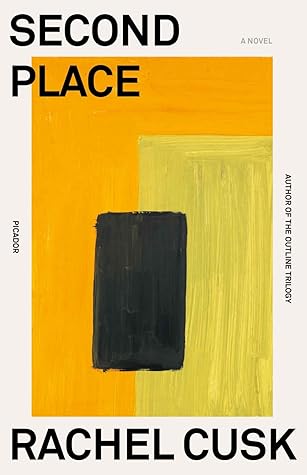More on this book
Community
Kindle Notes & Highlights
It’s so easy to think you don’t matter all that much at the very moment when your moral duty as a self is most exposed. If I’d stood up to him, perhaps all the things that happened afterwards wouldn’t have occurred. But for once I thought, let someone else do it! And that is how we lose control over our own destinies.
Why do we live so painfully in our fictions? Why do we suffer so, from the things we ourselves have invented?
It’s a question that begs an answer, and yet there is no clear and satisfying answer, except to say that this aura of male freedom belongs likewise to most representations of the world and of our human experience within it, and that as women we grow accustomed to translating it into something we ourselves can recognise.
This might sound so obvious as to be imbecilic, but I often think there’s just as much to be said about what you thought would happen as about what actually did.
Least of all did I understand what freedom was and how I could attain it. I thought it was a mere unbuttoning, a release, where in fact – as you know well – it is the dividend yielded by an unrelenting obedience to and mastery of the laws of creation. The rigorously trained fingers of the concert pianist are freer than the enslaved heart of the music lover can ever be. I suppose this explains why great artists can be such dreadful and disappointing people. Life rarely offers sufficient time or opportunity to be free in more than one way.
Right from the start, he had taken from death the impulse to live:
But the game of empathy, whereby we egg one another on to show our wounds, was one he would not play. He had decided to explain himself to me, that was all, and it was up to me what I offered in return.
The wounded don’t survive in nature: a woman could never throw herself on fate and expect to come out of it intact. She has to connive at her own survival, and how can she be subject to revelation after that?
Change is also loss, and in that sense a parent can lose a child every day, until you realise that you’d better stop predicting what they’re going to become and concentrate on what is right in front of you.
So much of power lies in the ability to see how willing other people are to give it to you.
I had come to view the world as far too dangerous a place in which to stop and congratulate myself. The truth was I had always assumed that pleasure was being held in store for me, like something I was amassing in a bank account, but by the time I came to ask for it I discovered the store was empty. It appeared that it was a perishable entity, and that I should have taken it a little earlier.
No, I don’t want to be completed. I prefer to try outrunning whatever’s after me. I prefer to stay out, like kids on a summer evening stay out, and won’t come in when they’re called. I don’t want to go in. But it means that all my memories are outside me.’
‘I’ve never had enough fun,’ I said to him. ‘I’ve had other things, but never that. Perhaps it’s as you say, that I force things to happen, and it’s in the nature of fun not to be forced.’
Some people write simply because they don’t know how to live in the moment, I said, and have to reconstruct it and live in it afterwards.
parenthood is the closest most people get to an opportunity for tyranny.
The truest test of a person is the test of compassion.
I wanted to be recognised by him, because grateful as I was for Tony and Justine and for my existence at the marsh, my individuality had tormented me my whole life with its demand to be recognised.
For the first time, Jeffers, I considered the possibility that art – not just L’s art but the whole notion of art – might itself be a serpent, whispering in our ears, sapping away all our satisfaction and our belief in the things of this world with the idea that there was something higher and better within us which could never be equalled by what was right in front of us.
Tony and L were both right, but that Tony was right in a way that was sadder and harder and more permanent. Tony accepted reality and saw his place in it as something he was responsible for: L objected to reality and was always trying to free himself from its strictures, which meant that he believed himself responsible for nothing.
no actual truth in all the universe, save the immutable one, that nothing exists except what one creates for oneself. To realise this is to bid a last and lonely farewell to dreams.
Might it be true that half of freedom is the willingness to take it when it’s offered?


